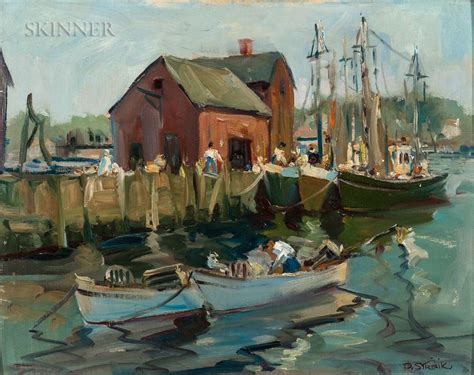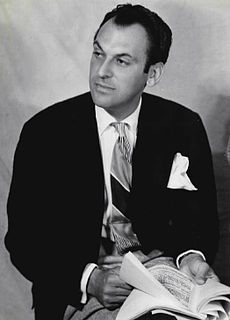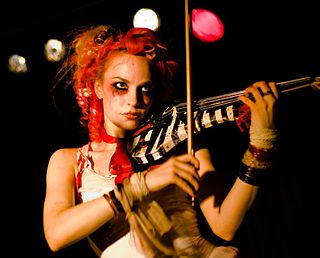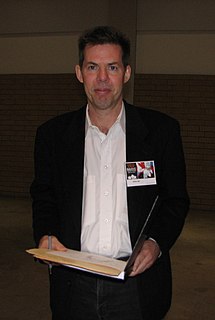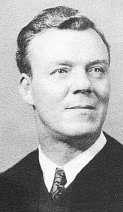A Quote by Paul Strisik
You can write a letter with a typewriter, a pencil, or a crayon. What you have to say is the important thing.
Quote Topics
Related Quotes
If you want to be a writer, all you need is a piece of paper and a pencil, and I had a manual typewriter. It doesn't cost money to write. It costs money to make art. So I would just write. I would hand out stories in the classes in high school. And the teacher would say, "Whatever you do, don't become a writer."
When forced to leave my house for an extended period of time, I take my typewriter with me, and together we endure the wretchedness of passing through the X-ray scanner. The laptops roll merrily down the belt, while I’m instructed to stand aside and open my bag. To me it seems like a normal enough thing to be carrying, but the typewriter’s declining popularity arouses suspicion and I wind up eliciting the sort of reaction one might expect when traveling with a cannon. It’s a typewriter,’ I say. ‘You use it to write angry letters to airport security.
Usually, the way I write is to sit down at a typewriter after that year or so of what passes for thinking, and I write a first draft quite rapidly. Read it over. Make a few pencil corrections, where I think I've got the rhythms wrong in the speeches, for example, and then retype the whole thing. And in the retyping I discover that maybe one or two more speeches will come in. One or two more things will happen, but not much.
I like 'pencil-necked weasel'. It has 'pencil' in it. Pencils are good things. You can draw or write things with pencils. I think it's what you call someone when you're worried that using a long word like 'intellectual' may have too many syllables. It's not something that people who have serious, important things to say call other people.
Darling, You asked me to write you a letter, so I am writing you a letter. I do not know why I am writing you this letter, or what this letter is supposed to be about, but I am writing it nonetheless, because I love you very much and trust that you have some good purpose for having me write this letter. I hope that one day you will have the experience of doing something you do not understand for someone you love. Your father
Friends will write me letters. They run out of room on the front of the letter. They write 'over' on the bottom of the letter. Like I'm that much of a moron. Like I need that there. Because if it wasn't there, I'd get to the bottom of the page: 'And so Kathy and I went shopping and we--' That's the craziest thing! I don't know why she would just end it that way.
